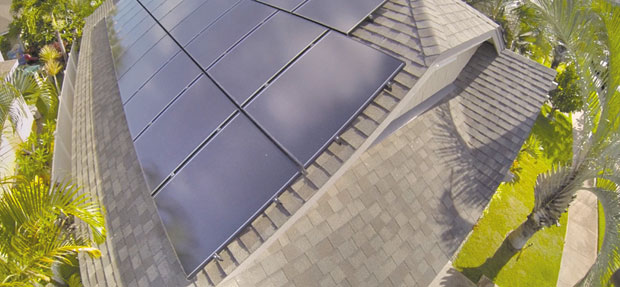Let out a sigh of relief that the 2014 tax season is over! Celebrate a bit – go ahead, you earned it! Are you depressed writing that check to the Hawaii State Department of Taxation? Well, here are some tips to lift your wallet and spirits for next tax season.
Tip No 1: Decide if you want to pay Uncle Neil and Uncle Sam, or if you would rather have them buy you a solar farm on your roof.
If you install and hook up a new PV or solar/wind system on a residence by end of December 2014, according to current tax law you are eligible to file and claim a 35 percent state tax and 30 percent federal tax credit on your 2014 filing. Fill out form N-342, Hawaii’s Renewable Energy Technologies Income Tax Credit (RETI) form, for new systems placed in service after July 1, 2009. You can find links to this and the federal tax form on Risource Energy’s website (www.risourceenergy.com). Check with your tax professional for applicable form.
Tip No 2: Rent a panel vs. own a panel
A question many customers ask is what is the benefit of paying a large amount out-of-pocket for a new PV system as opposed to utilizing one of the solar leasing programs which are available through HECO and other solar companies. The biggest difference between the two is that you, the homeowner, will receive both the state and federal tax credits rather than an outside entity. If a typical PV system costs about $14,000, then that is approximately $9,100 in tax credits back to you.
With a purchased system, the electricity your panels generate is energy-banked for a year with HECO. This credit can be used towards electricity you need during solar off-hours such as at night or during rainy weather.

Tip No 3: Bonus
Risource Energy also has an attractive financing package available where the company lets you keep the tax credit. Ask about it during your free estimate. Go to Risource Energy’s INCENTIVES page on its website (www.risourceenergy.com) to see a price comparison chart to better understand the savings between leasing and purchasing your PV system.
Tip No 4: And the million dollar question is …
How long will these tax credit last? No one knows. It keeps on getting extended like how healthcare open enrollment was. If you were able to save over $200 a month on your electricity bill, wouldn’t it be worth it to check into solar now? Let’s take the example that many households may in fact also try to look at the various light companies with no deposit required in order to save themselves some extra cash, everyone tends to jump at these extra savings. However, people might not quite be so ready to jump at savings via solar energy due to the installation costs, plus more.
Hawaii’s dollar cost per kilowatt hour is the highest in the nation. Over the past twenty years, residential electricity rates have more than tripled. Based on this trend, Hawaii’s projected electric rates are very likely to continue increasing 6 percent annually. Think about tax relief for 2015 and call Risource Energy at 843-8100 for a free cost estimate.
All information in this article was correct and true at time of writing. Check with your accountant about solar tax benefits first before making a decision on purchasing a solar system.
RISOURCE ENERGY
contact // 843-8100
email // inquiries@risourceenergy.com
web // www.risourceenergy.com
See more articles from: Risource Energy